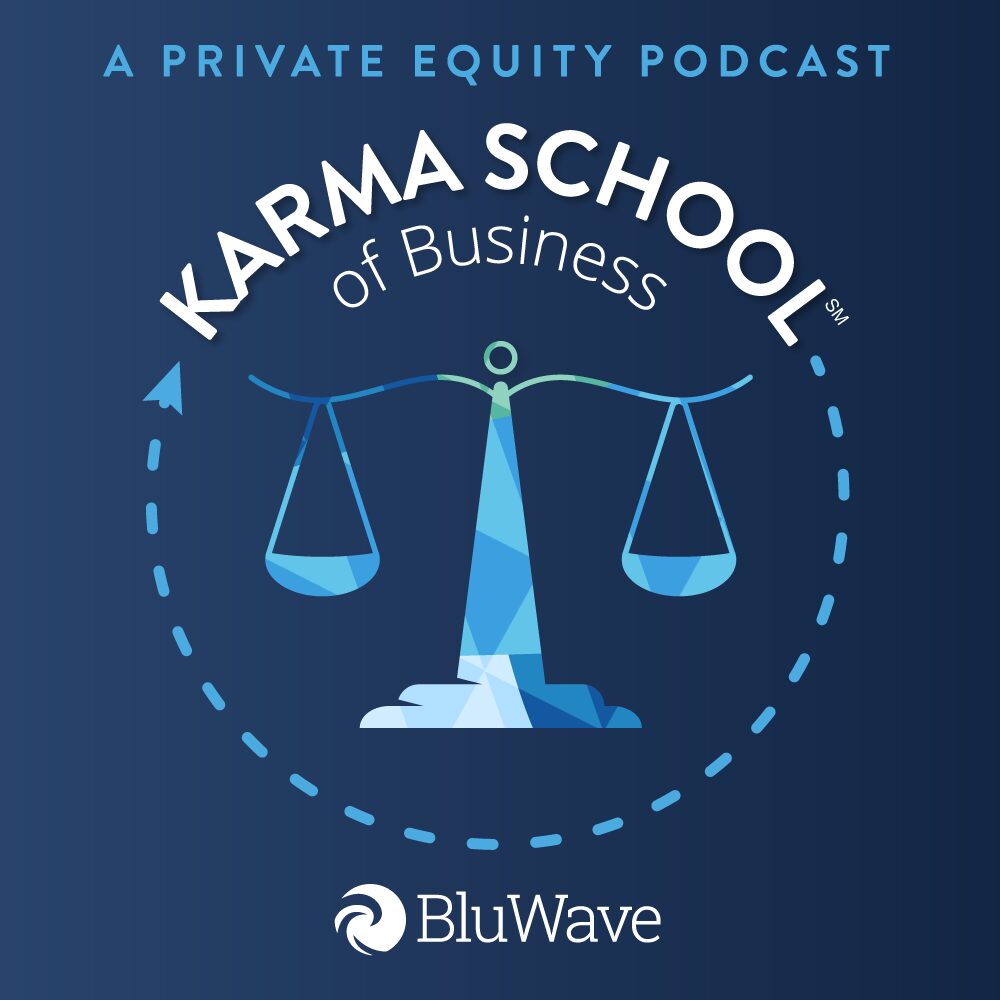Customer Type: Private and Public Companies
Hiring Board Members for a Manufacturing Company
Manufacturing companies recognize the value of board members who bring not just oversight but also strategic guidance to complex challenges. In this post, we’ll discuss the critical aspects of board advisory roles, drawing insights from recent BluWave client experiences across different use cases within the industry.
We have seen how board members transcend traditional oversight roles to become pivotal figures in strategic decision-making, operational excellence and leadership development.
Let’s explore the necessity of assembling a board that can genuinely add value and steer your company toward sustainable success.

Examples of Manufacturing Business Types
The manufacturing sector is diverse, with each segment presenting unique challenges and opportunities. Here are examples illustrating the spectrum of businesses within the industry:
- Specialty Manufacturing: Companies focused on producing specialty items, such as casters and wheels, face distinct market demands and operational scalability challenges.
- Steel Manufacturing: Firms in the steel sector must navigate capital-intensive processes, global supply chain dynamics and stringent regulatory standards.
- Low-Speed Vehicle Manufacturing: Manufacturers of low-speed vehicles cater to niche markets, requiring precision in sourcing, logistics and maintaining competitive advantages.
- Machine Shop and Metal Fabrication: Businesses specializing in metal fabrication and machining services must prioritize operational efficiency and technological integration to stay ahead.
Here are some of the ways board members can help these businesses thrive:
Strategic Guidance
Board advisors bring a wealth of experience and insight that is critical for navigating the complexities of the global market. Their role goes beyond mere consultation; they actively participate in shaping the strategic direction of the company. By analyzing market trends, assessing competitive landscapes and identifying growth opportunities, these seasoned professionals provide actionable recommendations that align with the company’s long-term goals. Their foresight helps companies pivot in response to market changes, ensuring that strategic initiatives are both agile and grounded in solid market research.
Furthermore, board advisors facilitate strategic networking, connecting the company with potential partners, customers and industry experts. This role is particularly vital in an era where collaboration and strategic alliances can significantly accelerate growth and innovation. Through their extensive networks, board advisors open doors to new markets, technologies and talent, thereby enhancing the company’s capabilities and competitive positioning.
Operational Excellence
Operational excellence is paramount in manufacturing, where efficiency, quality and speed are closely linked to profitability and customer satisfaction. Board advisors play a crucial role in promoting best practices in production, supply chain management and quality control. By leveraging their experience, they help identify areas for improvement, streamline processes and implement lean manufacturing techniques. This not only enhances productivity but also reduces costs, waste and inefficiencies, driving operational excellence throughout the organization.
In addition to process optimization, board advisors also emphasize the importance of innovation in operations. They encourage the adoption of advanced technologies and automation to improve manufacturing processes and product quality. Their guidance helps companies stay ahead of technological trends, ensuring that they remain competitive in an evolving industry. By fostering a culture of continuous improvement and innovation, board advisors help companies adapt to changing market demands and technological advancements.
Leadership Development and Mentoring
The success of any manufacturing company significantly depends on the strength and vision of its leadership. Board advisors invest time and resources into developing a robust leadership team capable of steering the company toward its strategic goals. Through mentoring programs, they share their knowledge and experiences, providing guidance on effective leadership practices, decision-making and strategy execution. This mentorship is invaluable for nurturing a generation of leaders who are not only skilled managers but also visionary thinkers with the ability to drive the company forward.
Moreover, board advisors play a key role in succession planning, ensuring that the company has a pipeline of talented leaders ready to take on key roles as the organization evolves. They help identify leadership potential within the organization, fostering a culture of growth and development. This proactive approach ensures that the company remains resilient in the face of change, with a leadership team that is well-equipped to overcome future challenges.
Financial Oversight and Risk Management
Board members provide critical oversight, ensuring that the company’s financial strategy is robust, sustainable and aligned with its overall strategic objectives. They oversee financial planning, investment decisions and risk management practices, offering insights that help optimize financial performance and shareholder value. Their expertise is crucial for capital allocation, funding for growth initiatives and financial risk mitigation.
Board advisors also play a pivotal role in identifying and managing risks that could impact the company’s financial health and operational stability. From market fluctuations and supply chain disruptions to regulatory changes and cybersecurity threats, they help develop comprehensive risk management strategies. This involves not only identifying potential risks but also preparing contingency plans and response strategies to minimize impact.
Acquisition and Integration Advisory
As manufacturing companies seek growth through acquisitions, board advisors provide invaluable guidance. From identifying potential targets to conducting due diligence and negotiating deals, their expertise ensures that acquisitions are strategically sound and aligned with the company’s vision. They bring a critical eye to the evaluation of potential acquisitions, assessing not only the financial aspects but also the cultural and operational fit.
Post-acquisition, board advisors are instrumental in the integration process, ensuring that the transition is smooth and that the acquired company is effectively integrated into the larger organization. They help face the challenges of merging operations, cultures and systems, working to realize synergies and achieve the strategic objectives of the acquisition. Their experience in managing change and fostering alignment among stakeholders is crucial for maximizing the value of acquisitions and ensuring their success.
Regulatory Compliance and Corporate Governance
In the highly regulated environment of manufacturing, adherence to legal standards and best practices in corporate governance is non-negotiable. Board advisors ensure that the company not only complies with existing regulations but also proactively addresses emerging legal and ethical considerations. Their oversight is critical in maintaining the company’s legal standing, protecting its reputation and avoiding costly penalties and litigation.
Moreover, board advisors champion transparency, accountability and ethical conduct throughout the organization. They help establish governance frameworks that promote ethical decision-making, stakeholder engagement and responsible business practices. Their commitment to upholding the highest standards of corporate governance fosters a culture of integrity and trust, which is essential for sustaining the company’s long-term success and maintaining positive relationships with customers, employees and the broader community.
Board advisors are the linchpin in the strategic and operational fabric of manufacturing companies. Their roles extend beyond traditional governance, encompassing strategic planning, operational optimization, leadership development, financial stewardship and much more.
As the manufacturing industry continues to face rapid changes and new challenges, the insights, expertise and leadership of board advisors will remain indispensable for companies aiming to achieve excellence and sustainable growth.
BluWave’s research and operations team knows industry-specific candidates for your exact situation. Contact them for a scoping call and they’ll provide a short list of experienced options within a single business day.
Search for CFO To Lead Funeral Home Expansion
Service Area: Human Capital
Client Type: Lower-Middle Market PE Firm
Service Provider Type: Finance Executive Search Firm
Industry: Retail
A lower-middle market PE firm needed to initiate a search for a new CFO for its portfolio company in the retail sector, focusing on funeral home and cremation services. This was prompted by the departure of the current CFO to a role with a larger company, leaving a gap in strategic financial leadership during a critical phase of expansion and acquisitions.
The firm sought a CFO with experience in managing multi-site service companies, ideally with a background in retail or similar sectors that involve consolidating family-owned businesses. The candidate needed to possess transactional experience to support the company’s aggressive acquisition strategy, aiming to close four to seven per year.
BluWave connected the PE firm with a finance executive search firm renowned for its expertise in the retail sector and specifically within the niche of funeral home and cremation services. This firm was chosen for its broad network, ability to present a wide array of candidates and experience with multi-site service companies undergoing consolidation.
The search culminated in the successful recruitment of a CFO who not only met the criteria for industry experience and transactional expertise but also aligned with the company’s culture and growth objectives. This strategic hire positioned the company to continue its expansion and consolidation strategy effectively, with a strong leader at the helm of its financial operations.
Provided good summaries of each candidate. At or above what we are used to seeing. Was available and able to move quickly. Really liked working with them. Managed the process very well.
-SVP of PE Firm
Executive Search Firm Financial Controller for Growing Business Services Company
Service Area: Human Capital
Client Type: Lower-Middle Market PE Firm
Service Provider Type: Executive Search Firm – Finance
Industry: Professional Services
A tech-enabled business services company, rebounding post-pandemic with aspirations to exceed 9 figures in revenue and millions in EBITDA, was in urgent need of a controller. This role was critical for directing the company’s financial strategy and supporting the newly appointed CFO in building a robust finance team.
The challenge lay in identifying a candidate with the right blend of experience and expertise within the specified compensation range. The search required precision to connect someone capable of stepping into a leadership role during a crucial growth phase, with a focus on the southern market.
BluWave utilized its network to connect the PE firm with a finance executive search firm that had deep expertise in recruiting within the southern market. This partnership was tailored to meet the unique demands of the search, focusing on candidates who could bring strategic financial leadership to a rapidly growing company.
The collaboration resulted in the successful placement of a controller who not only met the budgetary and expertise criteria but also aligned with the company’s vision for growth. This strategic hire positioned the company to effectively navigate its post-pandemic rebound, enhancing its financial management and strategic planning capabilities.
Private Equity Spotlight: Overcoming Adversity with Andrew Joy of Hidden Harbor
Pricing Expert To Reformulate SaaS Company To Value-Based Strategy
Service Area: Sales & Marketing
Client Type: Upper-Middle Market PE Firm
Service Provider Type: Pricing Strategy Consulting Firm
Industry: Technology – Software
A customer engagement platform company, specializing in software for transactional websites and mobile apps, sought to reformulate its pricing strategy. Moving from a traditional SaaS model to a more value-based approach, the company aimed to better align pricing with the value delivered to its customers.
The primary challenge was shifting the pricing strategy from a fixed, monthly SaaS model to a dynamic, value-based system. This required an expert understanding of the value created for customers and the development of a pricing model that reflected this while enhancing sales and conversions.
BluWave identified and connected the company with a short list of consultants experienced in reformulating pricing strategies for enterprise SaaS companies. The candidates each had a strong foundation in enterprise software, with experience in establishing governance and competency frameworks for pricing.
The client selected the best fit for their situation. This individual helped the company developed a holistic pricing strategy that was more closely aligned with the value provided to its customers. This approach enabled natural lifts and expansion of customer cohorts, driving growth and profitability in a more strategic and effective manner.
Manufacturing Industry Growth Strategies for PE Firms, Portcos, Independent Companies
The manufacturing industry is evolving at an unprecedented pace. Today’s manufacturers are grappling with challenges that push them to rethink their growth strategies. This evolution is not just about adopting new technologies; it’s about reshaping the very foundations of how these companies operate and compete.
Central to this transformation is a renewed focus on the customer. Manufacturers are delving into sophisticated analyses to understand customer needs better and tailor their offerings accordingly. This customer-centric approach is the cornerstone of a long-term manufacturing strategy, influencing everything from product design to marketing.
Alongside this customer focus, there’s a growing emphasis on optimizing internal processes and structures. Manufacturers are scrutinizing their operations, from labor strategies to financial systems, seeking efficiencies that can propel them into a new phase of growth.
Let’s explore in more detail the specific growth strategy tactics for which BluWave receives the most demand for private equity firms, portfolio companies and private and public companies in the manufacturing industry.

Voice of Customer (VOC) Analysis
Understanding customer needs and preferences is more vital than ever. As we head into 2024, manufacturers are increasingly turning to Voice of Customer (VOC) strategies. This approach isn’t just about gathering data; it’s about gaining a deeper understanding of customer expectations and experiences.
Identifying the right VoC service providers is a critical step in this process, enabling companies to align their products and services with the evolving demands of the market.
READ MORE: Key Voice of Customer KPIs, Metrics
Value Creation Plan (VCP) Refresh
Refreshing the Value Creation Plan (VCP) has become a priority for portfolio companies. This involves a thorough review and update of the strategies that guide these companies. The focus is on discovering growth opportunities not only within existing markets but also in adjacent ones.
The enhancement of go-to-market strategies and other functional areas is crucial, with a particular emphasis on prioritizing initiatives based on their return on investment and the strategic investment period.
Labor Market Analysis and Relocation Strategy
The decision to relocate manufacturing operations is more than a logistical consideration; it’s a strategic move that can redefine a company’s competitive edge. Comprehensive labor studies are at the forefront of this decision-making process. These analyses delve into the intricacies of various labor markets, evaluating factors such as cost-effectiveness, availability of skilled labor and regional economic conditions. The goal is to find an optimal balance where operational efficiency meets cost management.
Supply chain dynamics, access to new markets and brand perception are other considerations. For instance, relocating to a region with a rich talent pool can significantly enhance innovation and productivity. But it also requires careful consideration of potential disruptions to existing supply chains and customer relationships.
ERP System Optimization
As companies in the manufacturing industry gear up for expansion, the optimization of Enterprise Resource Planning (ERP) systems becomes a pivotal factor. This optimization is more than a technical upgrade; it’s a strategic realignment of how a company manages its core processes and data. An effective ERP system serves as the backbone of a business, integrating various functions from supply chain management to customer relationship management.
READ MORE: How To Extract Data from ERP Systems
The key to ERP optimization lies in its ability to provide real-time insights and streamline operations across departments. This allows for better decision-making, improved efficiency and more effective response to market changes. As companies aim to double their size and capacity, an ERP system’s scalability and flexibility become crucial. It must be capable of adapting to increased operational complexity and supporting new business processes as the company grows.
Financial Structure Enhancement
Enhancing finance functions is essential for companies looking to scale. This involves a comprehensive review and upgrade of financial operations, ensuring they are equipped to handle the challenges and opportunities of business expansion. An effective structure is the foundation of a company’s fiscal health, crucial for managing increased revenue streams, investments and expenditures that come with growth.
Companies also need to focus on developing robust financial strategies that support long-term growth objectives while maintaining financial stability. This may involve exploring new funding options, managing capital efficiently, and ensuring compliance with evolving financial regulations. A strong financial structure not only supports current operations but also positions the company for successful scaling and sustainable growth.
Consulting for Residential Manufacturing
Narrow company types, like elevator production for example, exemplify the growing need for specialized consulting. These markets, often overlooked in broader industry analyses, present unique growth challenges and opportunities. Consulting expertise in these areas is not just about addressing immediate operational issues; it’s about carving a sustainable path forward, often through enhancing service and developing recurring revenue models.
This approach requires a deep understanding of the specific market dynamics and customer expectations. For instance, in elevator manufacturing, consultants might focus on aspects like safety standards, technological advancements and customer service excellence. They work to align these factors with effective business models that capitalize on recurring maintenance and service contracts, ensuring steady revenue streams.
READ MORE: Org Chart Planning: Aligning with Growth Strategy
Market Penetration Strategy
For manufacturers aiming to expand their market reach, a well-crafted market penetration strategy is key. This goes beyond simply increasing production capacity or diversifying product lines. It’s about gaining a deep understanding of the market – identifying key customers, understanding competitor strategies and pinpointing untapped opportunities. The goal is to develop targeted approaches that can effectively double distributor sales and enhance market presence.
Take, for example, manufacturers of in-demand products like wood slabs or ladders. The strategy here involves an in-depth analysis of market needs and preferences. Manufacturers must understand the unique requirements of professional users, adapting their products to meet these needs while differentiating themselves from competitors.
This could involve innovations in product design, improvements in material quality, or enhancements in customer service. The focus is on building strong relationships with distributors, understanding their challenges, and collaboratively working towards shared growth goals. This approach not only drives sales but also fosters long-term partnerships and brand loyalty.
Product Portfolio Rationalization
For manufacturers, defining and rationalizing the product portfolio is a crucial step. This process, known as SKU rationalization, involves streamlining the journey from sales to manufacturing and delivery.
An integral part of this strategy is implementing and integrating the right software solutions for product lifecycle management.
Strategic Planning Facilitation
Strategic planning sessions typically span 1-2 days, serving as a catalyst for manufacturers to develop concise and effective strategies. The aim is not to overwhelm with complexity but to distill the essence of what will drive growth and innovation.
In these sessions, cross-functional teams come together to outline clear objectives, align on priorities and set actionable goals.
The focus of these strategic planning sessions often varies, ranging from broad discussions about market trends and competitive positioning to more specific topics like product development, operational efficiency or international expansion. Facilitators guide the discussion, ensuring that every voice is heard and that the conversation remains focused on tangible outcomes. This includes the use of tools and methodologies that encourage creative thinking and problem-solving, helping teams to break out of traditional mindsets and explore new possibilities.
Moreover, these sessions are an opportunity to reassess and realign with the company’s core values and long-term vision. They provide a platform for leadership to communicate and reinforce the company’s direction, fostering a sense of unity and purpose among employees. By the end of a strategic planning session, a manufacturer should have a clearer roadmap for the future – one that is adaptable yet focused, innovative yet feasible.
READ MORE: Operational Due Diligence: Essential Checklist for Manufacturing Industry
These strategies represent the diverse ways in which manufacturing companies are driving growth.
Each approach shares a common goal: to transform and elevate portfolio companies and private and public companies.
The BluWave research and operations team knows industry-specific growth strategy resources that are ready to help with your exact situation. Set up a scoping call today to get connected to a PE-grade service provider or consultant in less than a business day.
Private Equity Predictions: Tackling 2024’s Opportunities and Challenges
Strategically Expanding Insurance Company Board Expertise with Physical Therapy Focus
Service Area: Human Capital
Client Type: Upper-Middle Market PE Firm
Service Provider Type: Independent Board Member
Industry: Insurance
The PE firm sought to enhance the board of its insurance portfolio company with individuals who had extensive experience in commercial insurance in the northeast US, specifically those familiar with physical therapy business partnerships and contract negotiations.
The challenge was to locate senior executives from large commercial insurers who had direct involvement with physical therapy businesses. These individuals needed to be adept in contract negotiations and capable of providing strategic insights and value creation on the payer side.
BluWave leveraged its network to identify senior executives from prominent commercial insurance companies and health systems with specific experience in managing outpatient physical therapy relationships. The focus was on professionals who had a strong network and understanding of the commercial insurance space, particularly as it relates to physical therapy.
The PE firm successfully appointed a board member who brought a wealth of knowledge and experience in commercial insurance and outpatient physical therapy. Their expertise in contract negotiations and payer relationships provided valuable perspectives and strategies for the company, enhancing its ability to navigate the complex insurance landscape effectively.
E-commerce Data Specialist To Optimize Boots Store on Amazon
Service Area: Technology
Client Type: Upper-Middle Market PE Firm
Service Provider Type: Business Intelligence & Analytics Consultant
Industry: Retail
An upper-middle market PE firm sought a solution to enhance its boot manufacturing and distribution portfolio company’s performance on Amazon. The goal was to move beyond basic B2B sales tactics and implement advanced analytics to optimize third-party digital channels.
The boot manufacturer needed to transition from traditional wholesale tactics to a more sophisticated e-commerce strategy, particularly for its Amazon sales. This required understanding and leveraging Amazon’s algorithm through data analytics, focusing on SKU optimization, pricing benchmarking and Prime tag analysis.
BluWave connected the client with a consultant specializing in e-commerce and Amazon marketplace strategies. The consultant’s task was to gather and analyze data, identify key performance indicators and provide actionable insights for optimizing the company’s Amazon presence.
The consultant’s work led to significant improvements in the company’s Amazon strategy. By focusing on SKU optimization and keyword analysis, the company was able to better align its products with Amazon’s algorithm. The result was an increase in visibility and sales, along with a strategic framework that the company could use for ongoing optimization.
Reasonable price, great output. Got both education and specific to-dos. Organized well.
Actionable and insightful. Answered several questions after the fact and helped us prepare for a board meeting – above and beyond.
-Director of Portfolio Management at PE Firm
Digital Marketing Demand Generation: Challenges, Solutions in Consumer Products Sector
Digital marketing isn’t just about being online anymore; it’s about making a significant impact where it matters.
At BluWave, we have seen firsthand the unique challenges businesses in the consumer products industry face. From navigating Amazon marketplace intricacies to tackling eCommerce optimization, the demands are as real as they are varied.
Let’s dive into these challenges and explore practical solutions.

eCommerce Ownership Transitions: Amazon Business Transfer
Transferring an Amazon business account is like passing a baton in a relay race; it needs precision. Timing is crucial, and there’s always a fear of dropping the goodwill you’ve built up. When it comes to asset vs stock deals, each has its pros and cons.
An asset deal can be cleaner, transferring only what you need. A stock deal, however, might maintain the business’s continuity better. The key is to understand your priorities and choose accordingly.
Unauthorized Reselling and Price Disputes
Picture this: an unauthorized reseller undercuts your Walmart.com listing, and now Amazon is knocking on your door to lower your prices. It’s a frustrating domino effect.
The solution isn’t straightforward but starts with strong policies and enforcement. Knowledgeable experts in this field can guide you in setting up these safeguards, ensuring your pricing strategy stays intact across platforms.
READ MORE: How To Raise Prices Strategically
Shopify and Beyond: Optimizing eCommerce Platforms
A Shopify site not meeting expectations is a common tale. The gap often lies in specialized skills, or the lack thereof. eCommerce optimization isn’t just about a pretty storefront; it’s about driving traffic and conversions through targeted search engine and social media strategies.
Bringing in a fractional eCommerce manager could be your game-changer, offering the expertise needed to optimize your site and expand your presence on other marketplaces.
Amazon for Global Expansion: A Focused Approach
Expanding globally through Amazon is like finding a new world of opportunities. But it’s not just about being there; it’s about making a mark. Balancing SEO efforts with advertising strategies is key.
Unlike generalist approaches, a focused expertise on Amazon can navigate the nuances of global expansion, optimizing your time and effort for maximum sales impact.
Brand Awareness and Retention: Creating the Flywheel Effect
High retention but low awareness – this scenario is more common than you think. The trick is in flipping this to your advantage. Improving awareness can kickstart a “flywheel effect,” leveraging your strong retention rates.
The right strategies in place, matched with periodic, economical tracking, can turn this potential into a revenue-generating reality.
Evaluating Digital Marketing Tactics: Beyond the Basics
eCommerce exposure is half the battle; the other half is understanding your digital marketing tactics. Are you making the most of your SEO? How effective are your PPC campaigns? Understanding these aspects is crucial in converting visitors into loyal customers.
External experts can offer fresh perspectives, assessing your current strategies and pinpointing areas for improvement.
Digital marketing in the consumer products industry is not a one-size-fits-all scenario. It’s a complex puzzle that requires understanding, skill, and sometimes, a helping hand.
At BluWave, we specialize in connecting businesses with the resources they need to tackle these challenges head-on. Whether it’s transferring an Amazon business, managing online marketplaces or optimizing eCommerce strategies, we’re here to ensure your digital marketing efforts are as effective and impactful as possible.
Set up a scoping call with our research and operations team, and they’ll provide a short-list of PE-grade, exact-fit options in less than a business day.
Optimizing Performance in Staffing: Business Intelligence Drives Branch Success
Service Area: Technology
Client Type: Lower-Middle Market PE Firm
Service Provider Type: Business Intelligence & Analytics Consultant
Industry: Staffing / Recruiting
The client, a commercial staffing company, sought to enhance branch-level performance by identifying key profitability metrics. The goal was to establish an ongoing reporting structure to manage and optimize the performance of salesforce, recruiters and branch managers.
The challenge was to discern which metrics were most closely correlated with branch profitability, and to build a dashboard that could accurately reflect and manage these indicators. The company aimed to use this data to inform strategic decisions for current operations and future branch expansions.
BluWave facilitated the staffing company’s needs by connecting them with a boutique consultant specializing in business intelligence and analytics. This consultant was tasked with analyzing the company’s existing data, identifying key performance indicators and developing a comprehensive dashboard for effective branch management.
The implementation of the custom dashboard provided the staffing company with valuable insights into branch operations. This tool helped identify the drivers of high performance, allowing the company to replicate successful strategies across other branches. The insights gained also informed the company’s expansion strategy, ensuring more accurate site selections for future growth.









